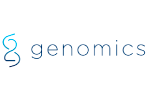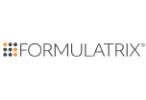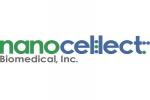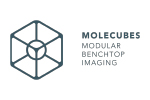Simoa technology is changing the way in which the biology of health and disease is studied by giving researchers the ability to closely examine critical biomarkers.
Automated microscopy and Spatial Proteomics
Automated microscopy and image analysis
Discover
Related topics
Don't waste your time for homogenization and get best results in neurscience with Singulator!

Jan 6, 2025
Single-nuclei sequencing (SNS) is a transformative approach for dissecting cellular diversity in complex tissues like...
Get your cells ready for NGS with tiples nanodispenser MANTIS

Jan 6, 2025
Generating high-quality cDNA libraries for efficient sequencing of T-cell receptor mRNA from single cells.
Webinar recording: Deep dive into Spatial Biology with MERSCOPE Ultra Platform

Aug 16, 2024
We invite you to learn more about MERSCOPE Ultra Platform. Webinar featuring Rob Mathis (Global Instrument Product...
Single-Cell Genomics applications ? Ideal work for the WOLF gentle cell sorter

Aug 2, 2024
The field of genomics and computational biology has progressed immensely over the last decade and new single-cell...
Study finds that automated liquid-handling operations are more robust, resilient, and efficient!

Jul 18, 2024
Liquid handling devices (LHD) improve lab efficiency and accuracy. They automate liquid transfers, increase experiment...
Scaling Whole-Genome Sequencing to >50,000 single cells using cellenONE

Jul 16, 2024
cellenONE technology enabled the creation of tens of thousands of high-quality single-cell genomes, paving the way for...
Theranostics: From Mice to Men and Back

Jun 25, 2024
Recorded webinar
Presenters: Prof. Dr. Ken Herrmann and Prof. Dr. Katharina Lückerath – Moderator: Hannah Notebaert
Orion 2024 AACR poster: 17-plex single-step stain and imaging of cell Lung Carcinoma

Jun 21, 2024
RareCyte Orion is a benchtop, high resolution, whole slide multimodal imaging instrument. A combination of quantitative...
Automated Purification of Viral DNA and RNA from Biological Samples usingZymo Research Quick-DNA/RNA

Jun 14, 2024
The Quick DNA/RNA Viral MagBead Kit from Zymo has been automated with the Cybio FeliX pipetting robot from Analytik...
DNA Amplicon Library Preparation for Illumina® Sequencing

Jun 12, 2024
The precision of temperature control, efficient heating and cooling rates, and excellent temperature homogeneity across...

Nov 3, 2023
Alzheimer’s disease (AD) is widely recognized as the most common etiology of dementia [1] and is currently ranked as the sixth most prevalent cause of mortality in the United States. The global prevalence of AD is expected to rise to 135 million individuals by the year 2050 [1].
There is currently no definitive diagnostic test or biomarker for the disease, which means that diagnosis often involves ruling out other causes of cognitive decline [2]. Several biomarkers have been identified that can potentially be used for diagnosing AD in its early stages. The four main biomarkers found in cerebrospinal fluid (CSF), i.e., amyloid beta (Aβ)1–42, Aβ42/40 ratio, Tau, and phosphorylated-Tau (p-Tau)181, are reliable for supporting AD diagnosis as they indicate the hallmark AD pathologies of amyloidosis and neurodegeneration [3]. Although these CSF biomarkers are reliable for supporting AD diagnostics, the process of collecting CSF can be inconvenient for subjects and may cause procedural efforts. This prevents their use as a screening item in initial, asymptomatic subjects and makes repetitive monitoring of the disease progression challenging. Therefore, there is a significant necessity to develop blood-based markers that can provide targeted and fairly noninvasive screening tests in the right context of clinical application
Brand profile
Simoa technology is changing the way in which the biology of health and disease is studied by giving researchers the ability to closely examine critical biomarkers.
More info at:
https://www.quanterix.com/